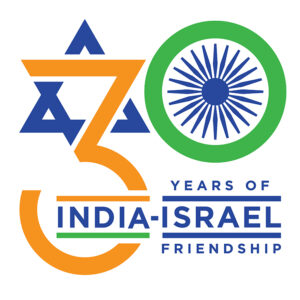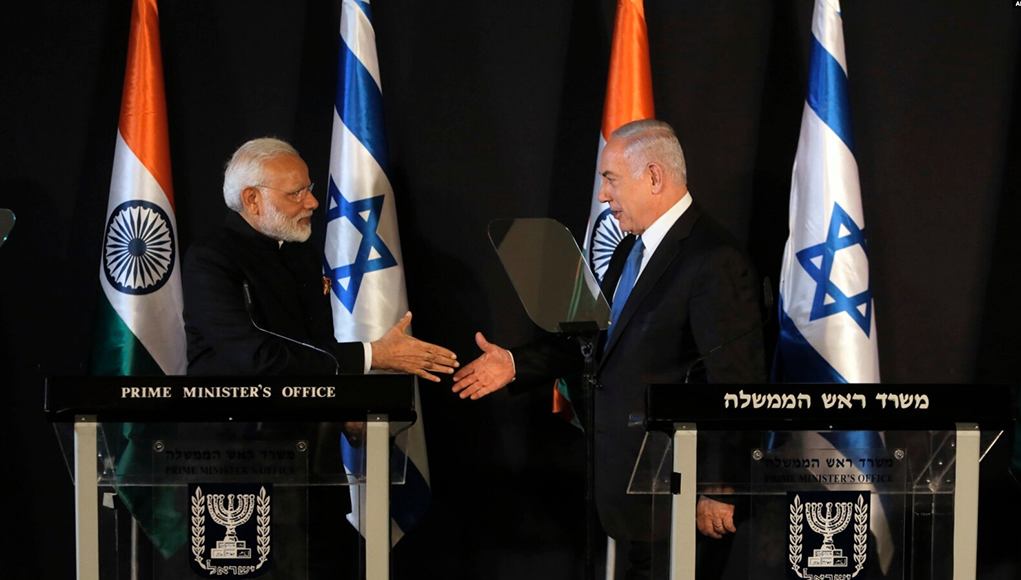 Yelahahanka, Bengaluru, Karnataka, India:
Yelahahanka, Bengaluru, Karnataka, India:
For several decades, India and Israel have established a long-standing relationship in the defense sector, with cooperation intensifying in the past 30 years. The association has grown from a buyer-seller relationship to a unique and comprehensive strategic partnership, with both countries collaborating on a wide range of defense projects and exchanging expertise in various fields.
This trusted partnership has always been a factor driving the growth of India-Israel defense cooperation. As two democracies whose heritage spans millennia, Israel and India’s bilateral relations stand tall in the changing geopolitical landscape. This trusted partnership has always been a factor driving the growth of India-Israel defense cooperation. As two democracies whose heritage spans millennia, Israel and India’s bilateral relations stand tall in the changing geopolitical landscape. From the terror attacks in Mumbai in 2008 to the COVID-19 pandemic of 2020, the two countries have stood together side by side. Israel proved a reliable partner, and its advanced defense technology and expertise make it a unique partner for India.

In association with Aeromag Asia
The official Media Partner of Aero-India 2023
These bilateral relations are essential for both sides. For Israel, the stimulus is strategic. As one of the world’s largest economies, India is an important ally that helps forge foreign relations in the region and beyond and a market that can tap Israel’s innovative technologies in many fields, from defense, security, and aerospace, to science, agriculture, healthcare, water management, and many other areas.
The history of India-Israel defense cooperation can be traced back to the early 1990s when India started purchasing defense equipment from Israel. Over the years, India has become one of the largest buyers of Israeli defense equipment, purchasing a wide range of products, including unmanned aerial vehicles (UAVs), radar systems, missile defense systems, and ammunition.
Atmanirbhar Bharat aims to unlock the potential of the Indian domestic industry and manufacturers to meet the country’s growing requirements
One of the significant milestones in India-Israel defense cooperation was the signing of a Memorandum of Understanding (MoU) on defense cooperation in January 2008. The MoU provided a framework for the two countries to collaborate on various defense projects and exchange expertise in multiple fields.
Joint defense programs between India and Israel include the development of unmanned aerial vehicles (UAVs), loitering missiles, electro-optics, radars, avionics, electronic warfare equipment, naval countermeasures, and communications systems. The two countries have also developed joint solutions for defense, security, cyber, and counter-terrorism operations, exchanging expertise in various fields.
Keeping their commitment to the Make-in-India policy, Israel’s defense enterprises have always respected India’s demand for localization and indigenization. All of Israel’s leading defense companies and some of the Small and Medium Enterprises (SMEs) have established joint ventures with local partners in India to position their products in the Indian market better. With activities covering various fields that were pursued under JVs with Defense Public Sector Undertakings (DPSU) such as HAL, BEL, and BDL, and Private Sector Companies such as Kalyani, Adani, Tata, Alpha Design, Mahindra, Wipro, among others, opening manufacturing plants in Hyderabad and other locations.
Israel’s leading defense companies have established JVs with local partners in India to position their products in the Indian market better
The MoU also laid the foundation for establishing the Joint Working Group on Defense Cooperation, which has been instrumental in strengthening the defense relationship between the two countries. This task force works to identify new areas of defense cooperation, examined within the strategic perspective of the two countries. The group examines mutually-beneficial technologies and fosters deeper engagement between the two defense ecosystems.
The defense relationship between the two countries has been shaped by India’s growing need for advanced defense technologies and Israel’s expertise in developing cutting-edge defense solutions. But the pace of business was determined by India’s complex regulations. In recent years, different rules regarding offset obligations and the mandatory level of domestic origin (known as ‘Make in India’) complicated collaborative programs as Israeli companies grappled with how to deal with the regulations and limited the scope to scale and grow. In recent years the policy has evolved into the Atmanirbhar Bharat (self-reliance) initiative that aims to unlock the potential of the domestic industry and manufacturers to meet the country’s growing requirements. The new policy is challenging and denies foreign players access to major Indian defense programs; on the other hand, it provides foreign companies a path for closer integration in the Indian market, offering up to 74 percent foreign direct investment in local companies. With a more substantial stake in JVs, Israeli companies are becoming assured of the intellectual property (IP) they transfer to the JVs they establish in India, thus overcoming a major roadblock that hindered some transfer of sensitive technologies in the past.
In conclusion, the past three decades have seen significant growth in India-Israel defense cooperation. The relationship has evolved from a commercial relationship to a comprehensive strategic partnership, with both countries collaborating on a wide range of defense projects and exchanging expertise in various fields. This cooperation is expected to grow in the coming years as Israeli defense companies expand their presence and adjust to India’s self-reliance policy to address regional security challenges and tap the true scope of this market. It comes at a time when the military seeks new solutions addressing operational gaps unveiled in recent conflicts and lessons learned from the war in Eastern Europe. A clear lesson is a need for India to become self-reliant. However, self-reliance should also promote synergy in defense research and technology – another facet of what Israel and India have in common.

















